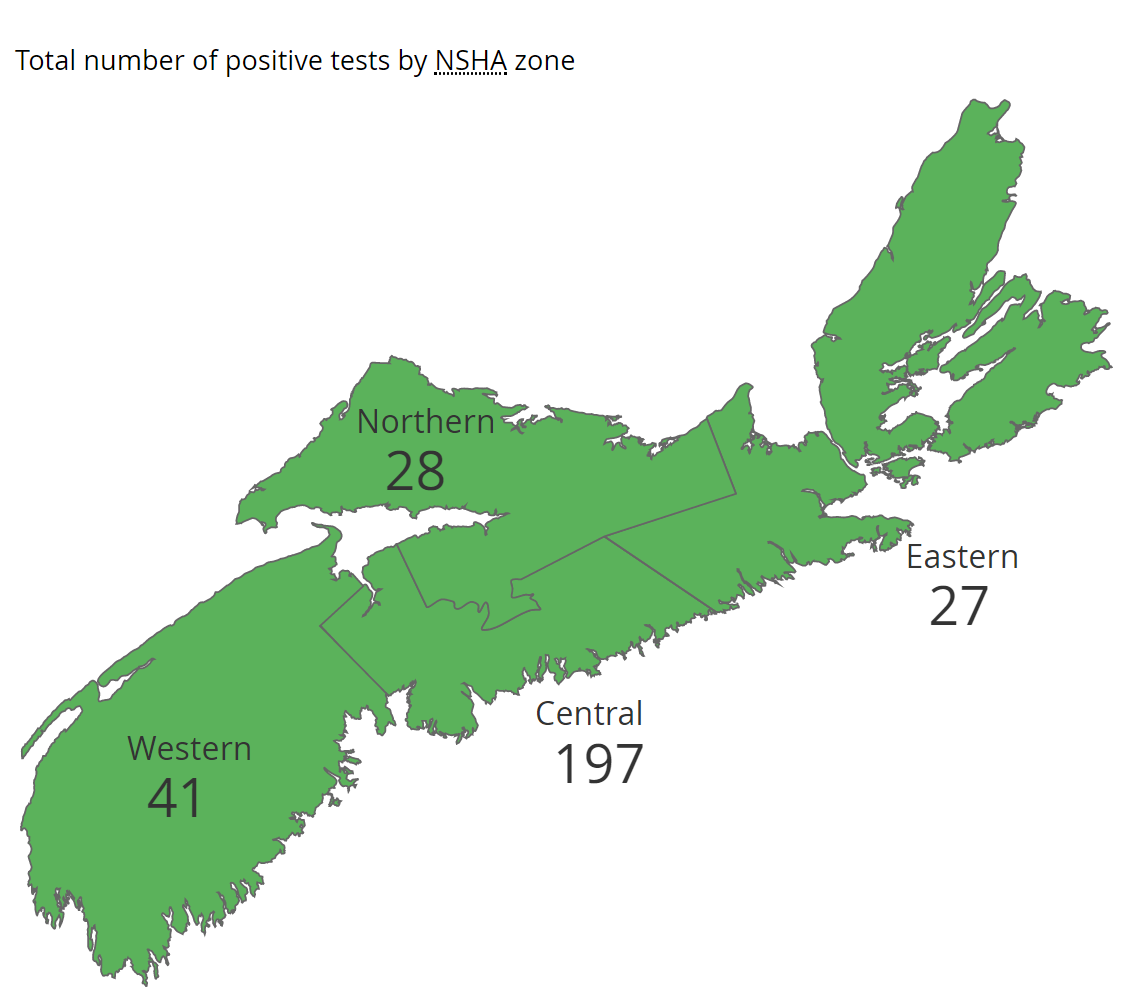New directives are being placed on Nova Scotia’s 132 long-term care homes as the province announced 31 more cases of COVID-19 on Monday, bringing the provincial total to 293.

Speaking at an afternoon press briefing, Dr. Robert Strang said the directives to long-term care homes include screening staff and residents at least once a day, or twice if they’re able.
That includes recording staff members’ temperatures at the start of their shifts, as well as conducting a health screening. New admissions to a facility will also require a health screening.
- ‘She gets to be 10’: Ontario child’s heart donated to girl the same age
- Bird flu risk to humans an ‘enormous concern,’ WHO says. Here’s what to know
- Shoppers faces proposed class action over claims company is ‘abusive’ to pharmacists
- Most Canadian youth visit dentists, but lack of insurance a barrier
Public health is also directing a reinforcement of physical distancing, enhanced cleaning and restrictions on business.

Strang says the measures in the directive are nothing new and have been carried out over the past number of weeks.
“We now feel that we have to move this from a guideline that facilities are being asked to do to actually making a very clear directive,” Strang said.
“All these long-term care facilities are required to take these steps to maximize the safety of their residents and protect their health-care workers.”
The directives are effective immediately.

Provincial total nears 300
Nova Scotia saw its largest one-day increase in COVID-19 cases on Monday, as the province announced that 31 were identified the day before.
Of the new cases identified, 22 are in central Nova Scotia, while there are three each in western, eastern and northern areas.
Nine are now in hospital, compared to six on Sunday. Over 10,000 COVID-19 tests have now come back negative.
Of the cases in the province, 52 per cent are female and 48 per cent are male. The age group with the most positive cases is those between the ages of 45 and 64.
The province says 650 tests were completed at the QEII Health Sciences Centre’s microbiology lab on Sunday.
Travel removed from COVID-19 testing requirements
During Monday’s briefing, Strang announced that going forward, travel history will be removed as one of the screening requirements to receive a COVID-19 test.
Strang called the move an “important step.”
“We know we have COVID-19 here in our communities,” he said, “The vast majority of Nova Scotians remain well and unaffected, but we have to be looking for this disease in Nova Scotians, not just based on travel history anymore.”
Strang added the QEII Health Sciences Centre’s microbiology lab now operating 24-7 will allow them to accommodate for the additional tests.
He says the move will allow health-care workers to process 1,000 tests a day.
Potential public exposure at a funeral
Earlier in the day, the Nova Scotia Health Authority announced a potential public exposure to COVID-19 at a celebration of life last month.
The celebration of life occurred at The Magnolia in Enfield on March 11. The health authority says public health has been directly contacting anyone who attended the service.
“While most people have been contacted, there could be some attendees that Public Health is not aware of,” the NSHA said in a release.
People who may have been exposed at The Magnolia are just past the 14-day period where they should self-monitor for signs and symptoms of COVID-19.
Questions about COVID-19? Here are some things you need to know:
Health officials caution against all international travel. Returning travellers are legally obligated to self-isolate for 14 days, beginning March 26, in case they develop symptoms and to prevent spreading the virus to others. Some provinces and territories have also implemented additional recommendations or enforcement measures to ensure those returning to the area self-isolate.
Symptoms can include fever, cough and difficulty breathing — very similar to a cold or flu. Some people can develop a more severe illness. People most at risk of this include older adults and people with severe chronic medical conditions like heart, lung or kidney disease. If you develop symptoms, contact public health authorities.
To prevent the virus from spreading, experts recommend frequent handwashing and coughing into your sleeve. They also recommend minimizing contact with others, staying home as much as possible and maintaining a distance of two metres from other people if you go out.
For full COVID-19 coverage from Global News, click here.






Comments